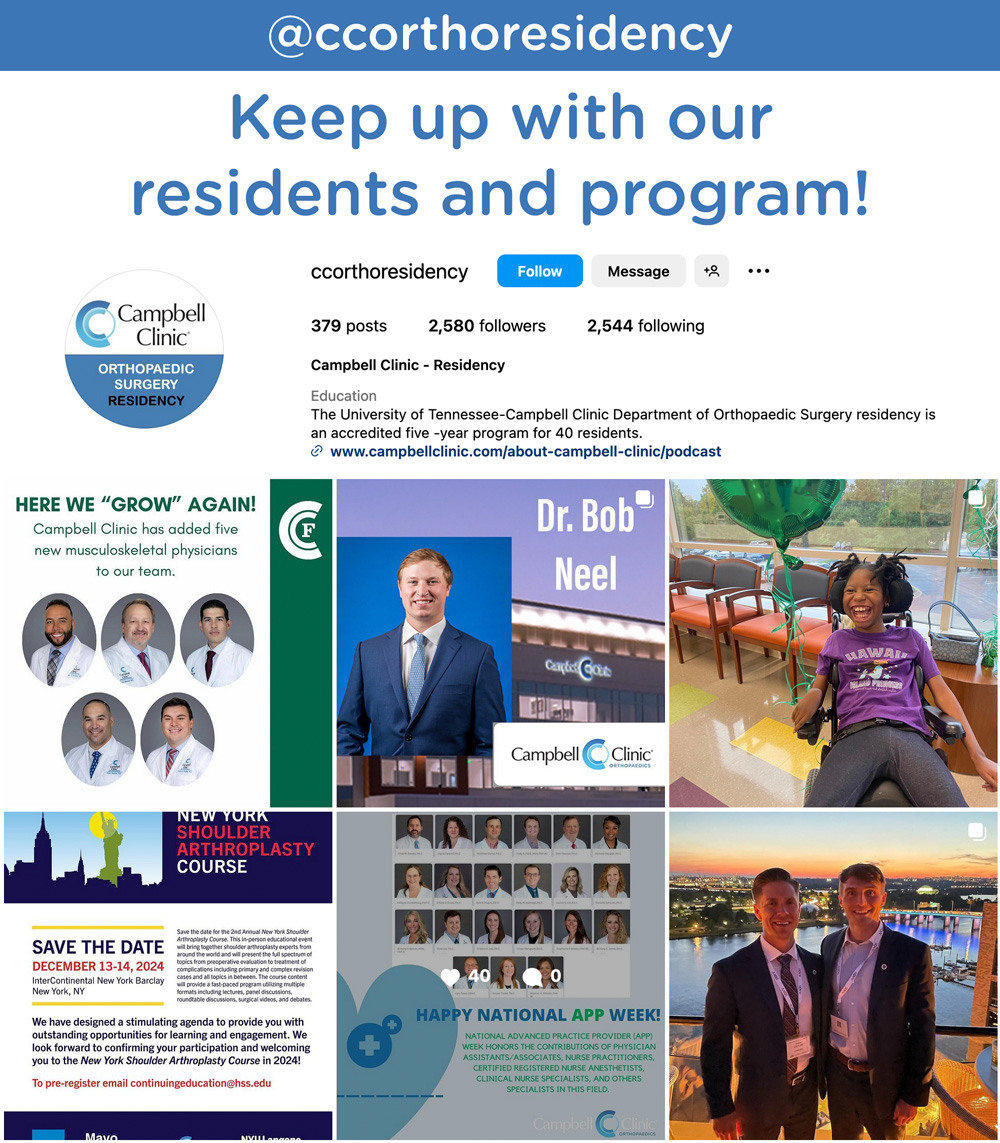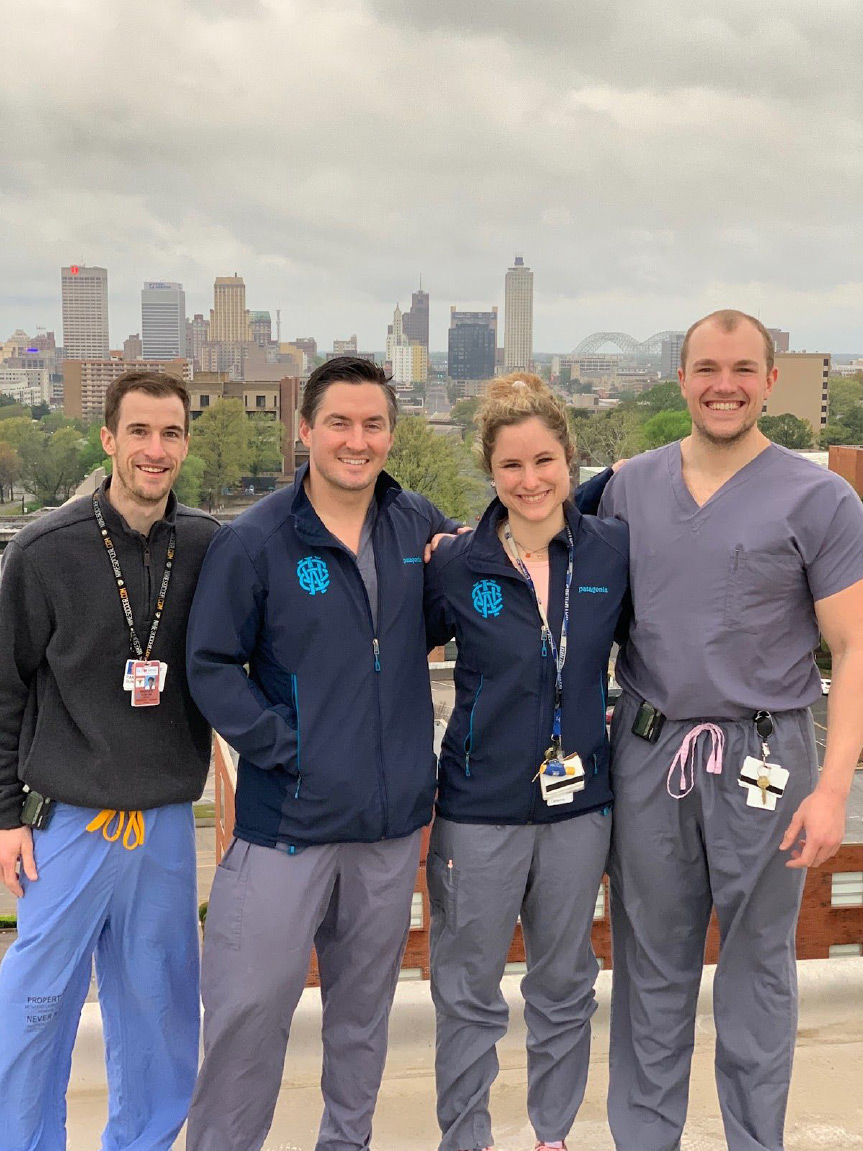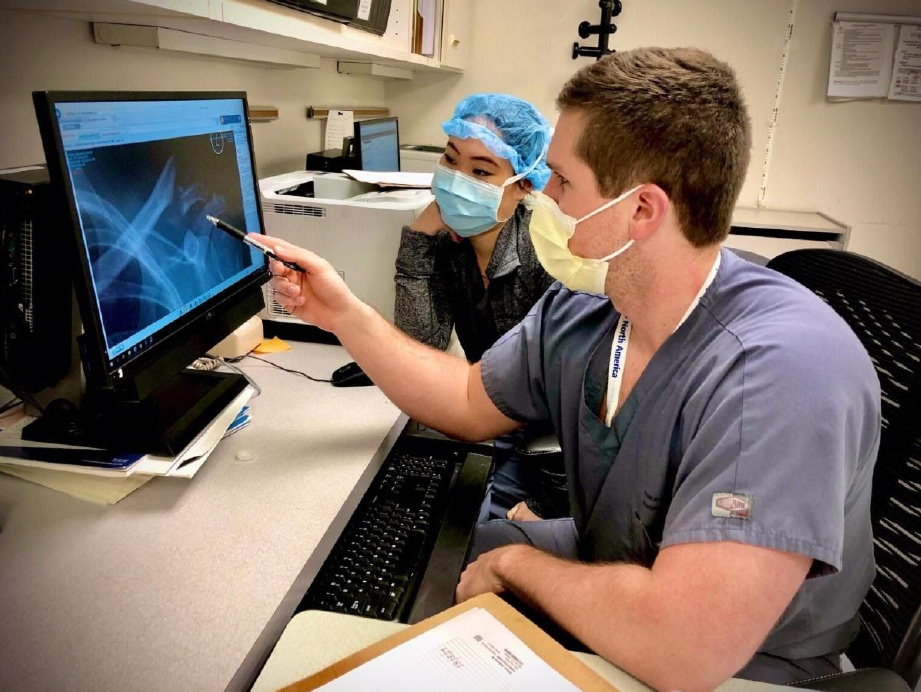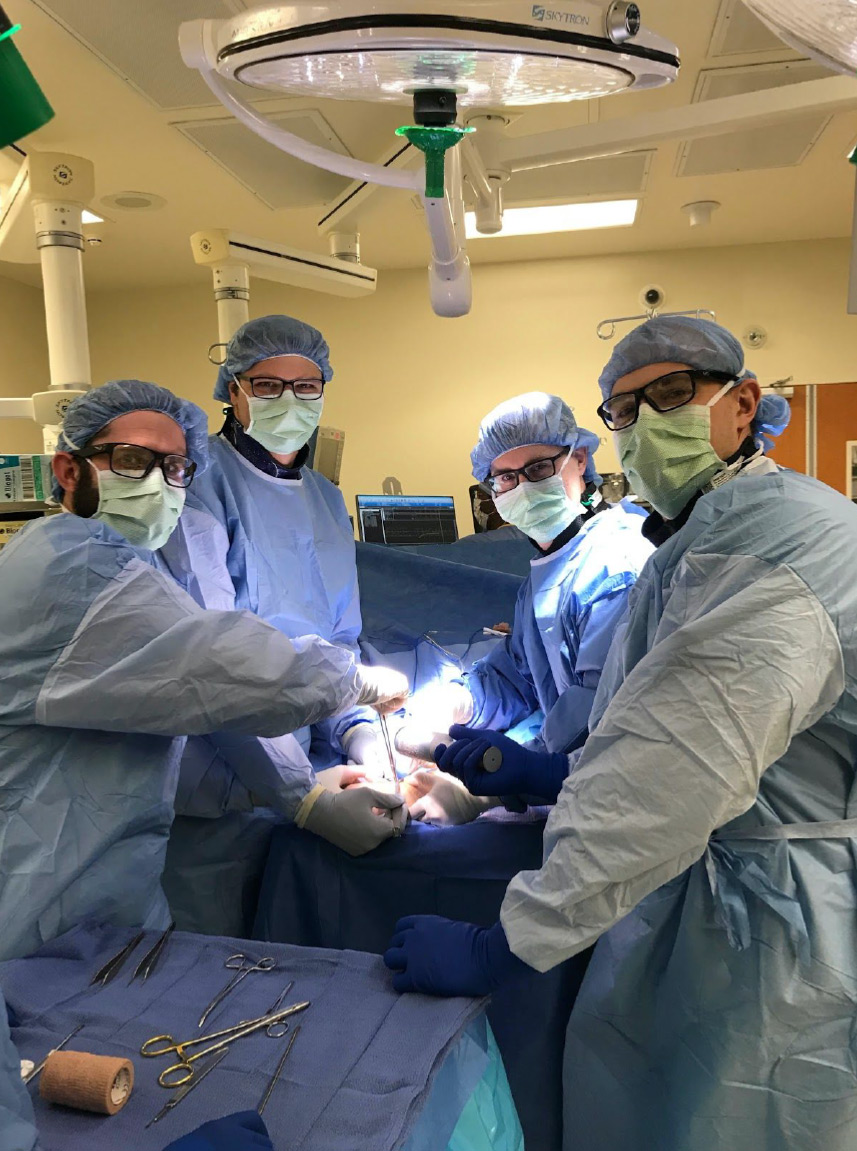Welcome to the University of Tennessee Health Science Center – Campbell Clinic Department of Orthopaedic Surgery and Biomedical Engineering
At the Campbell Clinic, our residency program is guided by more than just tradition — it is grounded in purpose. For over a century, we have trained orthopaedic surgeons who exemplify excellence in both technical skill and personal character. Our program is built upon three enduring pillars: Faith, Family, and Patient Care.
We are proud to uphold the mission of the Campbell Clinic:
To provide unsurpassed patient care while being a leader in orthopaedic research and education.
Faith
Faith—in all its forms—is a vital component of a life in medicine. It fosters servant leadership, helping residents lead with humility and put the needs of others before their own. It provides a strong ethical foundation for clinical decision-making, where integrity and moral clarity are often tested.
Faith also sustains compassion and resilience, essential traits for those caring for patients in moments of pain, vulnerability, and uncertainty. It reminds us that our work is not just procedural—it is profoundly human. At times of burnout, moral distress, or ambiguity, faith becomes a source of strength, purpose, and steadiness in the face of adversity.
Family
We believe residency should not come at the cost of personal relationships. We foster a culture where residents feel supported—by each other, by faculty, and by the broader Campbell community. Our graduates often describe their time here not only as training but as joining a family, one that prioritizes balance, celebrates life outside the hospital, and values lifting one another up.
Patient Care
At the core of our program is the patient. We provide a high-volume, diverse clinical and operative experience, ensuring residents are confident and capable in every orthopaedic subspecialty. Rotations span both academic and private-practice settings, offering broad perspectives and preparing residents to care for patients in any future environment.
To date, over 650 orthopaedic surgeons have trained at our institution. Among them are:
- 8 Presidents of the American Academy of Orthopaedic Surgeons (AAOS)
- 9 Directors of the American Board of Orthopaedic Surgery (ABOS)
- 4 Presidents of the American Orthopaedic Association (AOA)
- Numerous Presidents of subspecialty societies
Our faculty continues to author and edit Campbell’s Operative Orthopaedics, a foundational text in the field, reflecting our ongoing leadership in orthopaedic education.
Residents participate in:
- A weekly three-hour Core Curriculum Conference focused on mastering the knowledge necessary to be a practicing orthopaedic surgeon, score well on the OITE, and pass ABOS Part I
- Weekly subspecialty conferences in trauma, pediatrics, spine, hand, sports medicine, shoulder/elbow, and foot and ankle
- In-depth training in all business aspects of orthopaedics, including billing/coding, healthcare contracts, and private practice management
Our research infrastructure includes:
- Multiple full-time nurse research coordinators
- Access to patient outcomes databases
- A state-of-the-art biomechanics laboratory
- An orthopaedic library with a full-time medical librarian
- Editorial and photography support for manuscript and presentation development
Residents routinely present their research at national and regional meetings, contributing to the ongoing advancement of the field.
We are proud of our past, anchored in our present, and committed to shaping the future. The Campbell Clinic remains a place where excellence in orthopaedic surgery meets a commitment to Faith, Family, and Patient Care—because we believe the best doctors are not only highly trained, but also deeply grounded.
Clayton C. Bettin M.D.
Residency Program Director
Residency Program Overview
The University of Tennessee Health Science Center – Campbell Clinic Department of Orthopaedic Surgery and Biomedical Engineering residency program is an accredited five-year program for 40 residents, directed by Dr. Clayton Bettin, Campbell Clinic surgeon. The program is designed to provide each resident with a well-balanced foundation in academic and theoretical learning and practical clinical experience. The residency program is well-balanced mix of private practice and academic orthopaedic surgical experience.
Through a series of rotations in the various subspecialty areas residents are gradually exposed to surgical techniques.
Rotations focus on the following subspecialty areas: trauma, sports medicine, total joint, general orthopaedics, adult reconstructive surgery, pediatric orthopaedics, foot and ankle surgery, hand surgery, spine surgery, orthopaedic oncology, and anatomy and pathology.
Residents are expected to master the technical aspects of each rotation to assume greater responsibility for more challenging diagnostic and treatment decisions and more complex operative procedures.
A combination of role-modeling and hands-on training provides each resident with the opportunity to refine his or her knowledge and skills with clearly defined objectives and timely evaluation for each rotation.
Each rotation provides practice-based learning with exposure to a busy clinical practice.
Communication skills and professionalism are enhanced during rotations with one-on-one interaction with staff members in a private practice setting. Attending surgeons not only role model and instruct but also evaluate the resident’s professional behavior and ability to communicate with patients of all ages and circumstances and their families.
System-based practice skills are honed in all rotations by the completion of necessary forms, records, and other administrative paperwork required for both inpatient and outpatient care.
Supervision and instruction of junior residents by more senior residents develops communication and administrative skills and graduated autonomy in the OR is given to residents who develop the necessary skills and competencies required.





